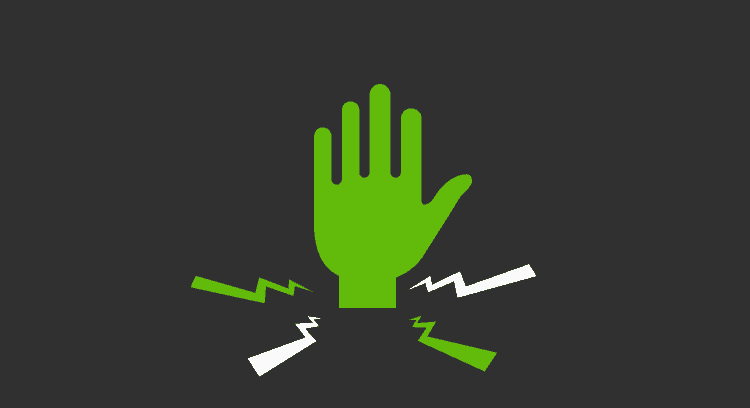Carpal Tunnel Syndrome and Other Computer Ailments
Does your back hurt? Does your wrist get numb? Are your eyes tired? We’ve got good news for you, but we’ve got bad news too.
The good news: it’s possible that all this isn’t happening to you because you’re getting old.
The bad news: it’s also possible that if you’re a computer scientist or use your computer to work, all those computer-related injuries are related to your job.
Since being a computer scientist can be a lot harder than it seems. Okay, it’s true that it’s not as tiring as carrying sacks of cement, or as risky as being James Bond (for example), but that doesn’t mean that it’s an easy job without health problems.
In this article we are going to look at some of the ailments that can most affect computer scientists and people who work with computers for a long time. In addition we will also see some good habits to try to prevent them. However, don’t forget to always go to a medical professional who can help you, because the symptoms can hide all kinds of disorders and you could even suffer more serious injuries if you don’t treat yourself in due time.
Shall we begin?
Do you spend a lot of hours every day hitting the key or the mouse? Then you may have some of the following problems. Keep in mind that this list does not include some of the most common injuries that computer users suffer, such as putting up with bosses or dealing with heavy customers. That is a whole different story…
-Carpal tunnel syndrome
This is one of the most recurrent problems in the computer world. Excessive pressure on the median nerve of the wrist causes pain, numbness, weakness, or tingling in the wrist, hand, or fingers.
Although there are many causes outside of computing when it comes to this type of discomfort, it can also result from the use of computers. Repetitive actions such as typing on a keyboard or using the mouse can cause these types of symptoms.
What can we do to prevent them? Often, one of the reasons why this syndrome appears is due to bad posture when using the mouse (for example, curving the wrist), so a more correct posture can help a lot. You can also do frequent breaks or wrist exercises.
– Epicondylitis
Epicondylitis is an inflammation of the tendons in the elbow and forearm, often caused by repetitive tasks such as using a mouse.
Its main symptom is pain, which usually appears when certain actions are carried out, such as gaining weight, or using the computer itself, although other symptoms may also appear, such as numbness.
What can we do to prevent it? Since this is a condition similar to carpal tunnel syndrome, prevention measures will also be similar. Adopting the correct posture, stretching or taking the appropriate breaks could help us avoid the appearance of this painful discomfort.
– Visual fatigue
Everyone has suffered from this at least once. If your professional activity involves spending many hours a day in front of a computer screen, oh well…
Visual fatigue can manifest itself through various symptoms: blurred vision, eye discomfort, dry eyes or even headaches.
There are many little tricks to try to avoid this problem. For example, it is important to adopt a good posture in front of the screen and keep it at the proper distance and height, as well as having good lighting, adjusting the brightness of the screen, taking frequent breaks, and of course, if you wear glasses or contact lenses, make sure you’re using the right prescription.
– Back and neck pains
It is undoubtedly one of the most widespread ailments among computer users.
There are two main reasons why back or neck discomfort can be caused by the use of computers.
On the one hand, we find bad postural hygiene. In fact, too often, when we use a computer we have the habit of adopting bad postures that contract the back and the cervical area, and over time can even cause the appearance of serious injuries.
On the other hand, the daily and prolonged use of computers, almost always in a seated position, can lead to a high level of sedentary behaviour on the part of the user, which will affect his muscles, weakening them and causing even worse postures and a greater risk of injury.
What can we do to avoid this? It is clear that maintaining an adequate posture is essential, but it can also help a lot to exercise and to take all the breaks that are necessary.
– Computer stress
We already wrote a post talking about this ailment. Computer stress is the feeling of anxiety and unease that affects the user of a computer system when it does not work or does so in a way different from their expectations.
Do you work as a computer scientist and you’re prone to this kind of problem? It’s certainly not good news. Computer stress can cause high doses of stress, and even some cases of heart attack from this cause have been reported, so you’d better pay attention to it…
How can we avoid this? By taking things slower… as well as relaxation exercises, a good diet, physical exercise, lowering the brightness of the screen and taking breaks, these will be good habits that will help you prevent greater evils.
These are some of the ailments that can affect computer professionals and, in general, people who work with computers for a long time. Do you suffer from any of them? As we said at the beginning of this post, don’t forget to go to health professionals who can help you.
But don’t forget to take a few minutes to get to know Pandora FMS, a tool that can be of great help in your work as a computer scientist. Click here to find out all about it: https://pandorafms.com/
What did you think of this article on carpal tunnel syndrome?
Leave us your opinion about carpal tunnel syndrome in the comments section below. We will be happy to answer all your questions.
Pandora FMS’s editorial team is made up of a group of writers and IT professionals with one thing in common: their passion for computer system monitoring. Pandora FMS’s editorial team is made up of a group of writers and IT professionals with one thing in common: their passion for computer system monitoring.

















